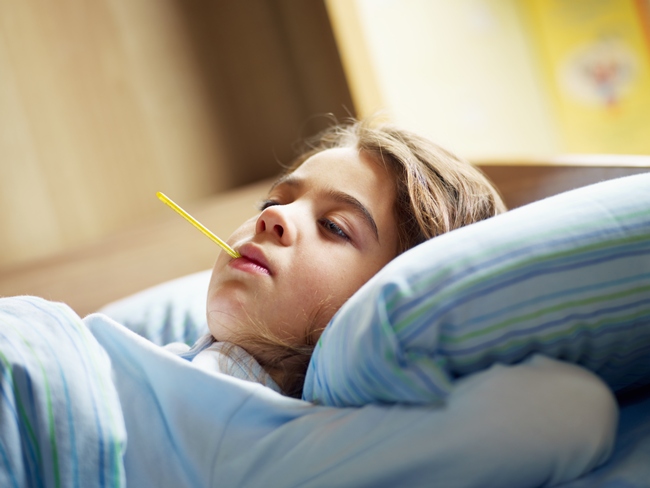Now that school’s back in session, keeping your family healthy can be tricky. One particular concern? The norovirus.
If someone in your family has ever had the norovirus, you know exactly why it’s a concern. Here’s what you should know about this common, contagious stomach virus.
The norovirus is very common, with the CDC estimating that it causes up to 21 million illnesses and 71,000 hospitalizations each year. It can be passed from person to person, via contaminated food or water, and via contaminated surfaces.
While cases of the norovirus occur year-round, they’re most common right smack in the middle of the school year, from November through April. That’s probably why many people mistakenly refer to the norovirus as the “stomach flu,” though the virus is not caused by influenza.
Symptoms to watch for
The norovirus shows up as a particularly bad stomach bug. That’s because it causes your stomach and intestines to become inflamed, which causes all sorts of unpleasant symptoms, including:
- Abdominal pain
- Abdominal cramping
- Diarrhea
- Low-grade fever
- Muscle pain
- Nausea
- Vomiting
Symptoms generally emerge 24 to 48 hours after exposure to the virus, and the virus itself can last up to three days. Even after the virus has run its course, a person remains contagious for up to three days.
How to handle the virus
Because the norovirus is a virus rather than a bacterial infection, it cannot be treated with antibiotics. If you experience severe symptoms, including diarrhea that lasts multiple days, an inability to keep foods down or dehydration, visit your doctor. He or she may prescribe medications that can help ease the symptoms.
Otherwise, the most important thing you can do is to drink plenty of fluids. During the norovirus, you lose lots of fluids, so replacing them is essential. If you’re unable to keep food down, drink low-calorie sports drinks to help replenish nutrients and minerals. Oral rehydration fluids available at the drugstore are also helpful.
While recovering, stick with a bland diet of soup or broth, starches such as potatoes or rice, bananas, or broiled vegetables. This may help limit vomiting and help regain strength.
Steps to prevent the norovirus
Like with any type of illness, the best treatment is prevention. Take these steps to help avoid contracting the norovirus in the first place.
- Wash your hands regularly. It’s especially important to wash hands with soap and water after using the restroom or changing a diaper. Hands should also be washed before eating, preparing or touching food. Remind your kids to wash their hands throughout the school day.
- Rinse fruits and vegetables before eating. The norovirus can live on foods, so it’s important to wash produce before eating it. If you’re eating shellfish, make sure to cook it thoroughly before eating.
- If you’re sick, don’t prepare food for others. If you’re generally the chef in your family but have the norovirus, it’s time for a vacation from cooking. Don’t prepare foods or care for others for at least two days after your symptoms go away.
- Clean and disinfect contaminated surfaces and wash contaminated laundry. If someone in your household contracts the norovirus and throws up or has diarrhea, use a bleach solution to thoroughly disinfect your home. Laundry that comes in contact with an infected person, including sheets and clothing, should be washed immediately. Wear rubber gloves or otherwise take precautions to avoid touching the laundry.
Dehydration is a common side effect of the norovirus. If you or a loved one become severely dehydrated, seek emergency care. Is your little one the one who’s sick? The emergency room at Children’s Hospital at Erlanger is specifically designed to provide care for the unique needs of kids.







